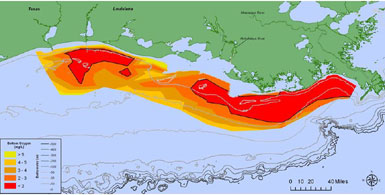Five years after BP’s tragic Deepwater Horizon oil spill in the Gulf, the US Department of Justice (DOJ) settled out of court for $20.8 billion to resolve all charges related to natural resource damage and restoration.
Before you get excited about the big charge, realize that most of it is being paid by taxpayers because … BP can deduct $15.3 billion as a tax deduction! According to the IRS, it’s an "ordinary cost of doing business." Just $5.5 billion is explicitly not deductible as a penalty under the Clean Water Act, notes US Public Interest Research Group (PIRG).
The settlement also allows BP to claim $5.35 billion as a tax windfall, nearly offsetting the cost of the Clean Water Act penalty, says PIRG. Adding further insult, BP gets to spread the payments over 18 years.
"This not only sends the wrong message, but it also hurts taxpayers by forcing us to shoulder the burden of BP’s tax windfall in the form of higher taxes, cuts to public programs, and more national debt," explains Michelle Surka at PIRG. DOJ could have specified non-deductibility as part of the settlement, but it did not.
Dead Zone in the Gulf, 2014

"This resolution is strong and fitting," says Attorney General Loretta Lynch. "BP is receiving the punishment it deserves while also providing critical compensation to the damage to the Gulf region." The settlement – which must be approved by a federal court – is the largest ever in the US with a corporation.
BP has already written off the $32 billion it spent for cleanup after the spill, with a tax windfall of $10 billion. The only charge DOJ specified as non-deductible is the $4.5 billion criminal settlement for the deaths of 11 oil rig workers and for misleading shareholders on how much oil it spilled. The company also agreed to $5.9 billion in settlements with the five Gulf states.
DOJ’s case is separate from the class-action settlement between BP and the businesses and individuals affected by the spill. The company has tried hard to get away with paying it, taking it all the way to the Supreme Court – which denied BP’s appeal in July.
The Obama administration announced that $8.8 billion of the settlement will go into a Gulf Restoration Fund. $5 billion of it will be used to repair Louisiana’s coastal wetlands. The rest will restore habitats and water quality. Hundreds of miles of shoreline was damaged and more than a million birds and other wildlife died, according to environmental groups.
"Every penny of this BP settlement ought to be going to recovering these badly damaged Gulf ecosystems, and BP ought to be paying a fine that really hurts, rather than an amount that will barely affect its balance sheet," says Miyoko Sakashita of the Center for Biological Diversity. "Worse yet, the Obama administration has yet to implement significant reforms to make sure this never happens again."
Recent studies show ongoing harm from the spill, such as severe lung injuries that killed dolphins, near-record lows of Kemp’s Ridley sea turtle nesting, chemical dispersants still impacting corals and a "bathtub ring" of oil still on the seafloor.
For 2014, BP reported $44.3 billion in profits. Meanwhile, while it releases reports on climate change and calls for a carbon tax, BP tops the list of companies obstructing Europe’s action on climate change. It has strongly opposed even slightly higher prices for the EU’s cap-and-trade program, and it is behind the weaker-than-expected renewable energy and efficiency goals in its climate pledge.
Read more:

